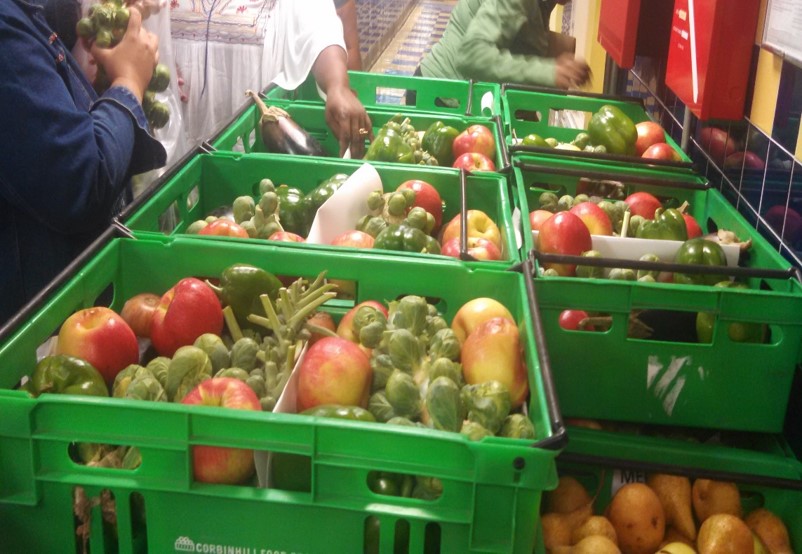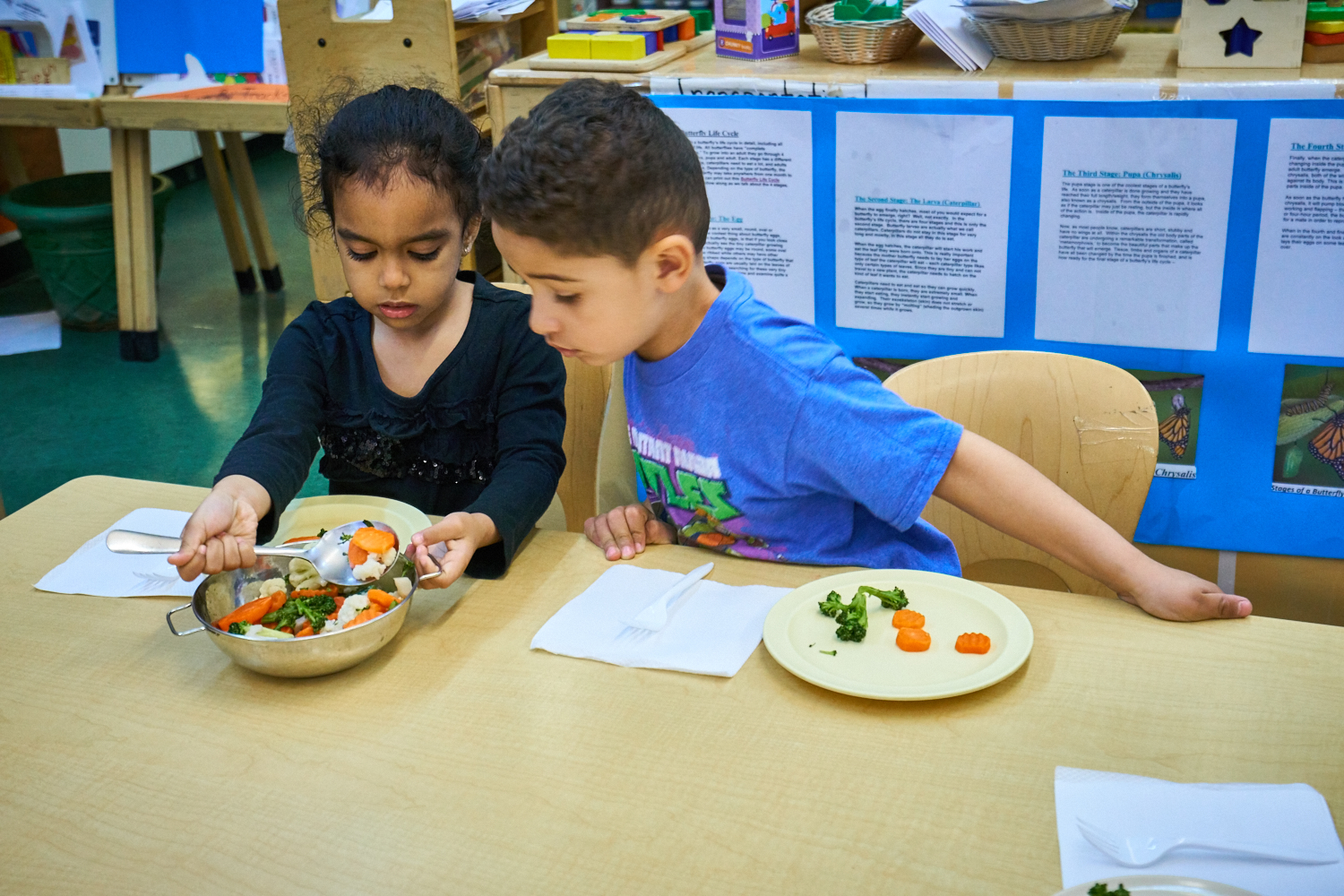Image above: Serving fresh vegetables at meal time. Credit: Mark Luinenburg. Photo courtesy of Bedford Stuyvesant Restoration Corporation.
In New York and other cities, substantial evidence documents that community food environments interact with inequitable allocation of power, wealth, and services to shape the distribution of diet-related diseases and food insecurity. What role can local organizations such as community development corporations and settlement houses play in changing these inequitable patterns of nutritional health and food access? In a new case study published in the Journal of Urban Health, Afia Bediako, Tracey Capers, and Aysu Kirac from Bedford Stuyvesant Restoration Corporation (Restoration) and Michele Silver and Nicholas Freudenberg from the CUNY Urban Food Policy Institute analyzed the role Restoration has played in changing food environments in Central Brooklyn.
The report shows how Restoration has launched multiple coordinated food initiatives in order to reduce the burden of food-related health problems and boost community development. The report used standard case study methods to document the implementation of the Kellogg Foundation’s New York City Food and Fitness Partnership in Central Brooklyn (now The Partnership for a Healthier Brooklyn, at Bedford Stuyvesant Restoration Corporation). The study shows how two distinct strands of activities, a Farm to Early Care Program that ultimately brought fresh food to 30 child care centers, and an emerging food hub that seeks to make fresh local food more available in Central Brooklyn, intersect and reinforce each other.

Farm Share distribution at Head Start, Brownsville, Brooklyn. Photo courtesy of Bedford Stuyvesant Restoration Corporation.
The case study shows how organizational, community, and municipal resources and policies in some cases supported these initiatives and in others served as obstacles. Finally, the case study shows that multiple coordinated strategies have the potential to empower low-income Black and Latino communities to act to make local food environments healthier and more equitable.
Full citation: Silver M, Bediako A, Capers T, Kirac A, Freudenberg N. Creating Integrated Strategies for Increasing Access to Healthy Affordable Food in Urban Communities: A Case Study of Intersecting Food Initiatives. J Urban Health. 2017. doi:10.1007/s11524-017-0178-6. To request a copy email UrbanFoodPolicy@sph.cuny.edu
